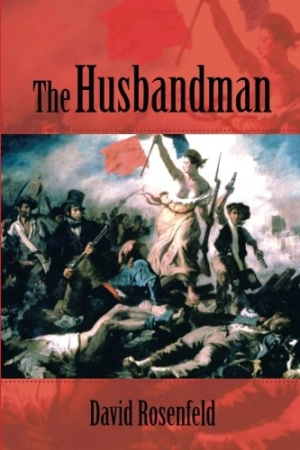The Husbandman
Through thoughtful poetry and prose about the human condition, Rosenfeld advocates for greater individual freedom.
Through both poetry and prose, David Rosenfeld laments the erosion of political and social responsibility in contemporary life. The Husbandman is written in a densely-worded style that mixes modern and historical references.
The titular husbandman represents an old-fashioned meaning of the word as manager of domestic affairs. The first poem, titled “The Husbandman,” discusses that citizen’s fears about his country’s economic ruin, an “impending doom” compared to “the fall of Rome.” This and subsequent poems, written from the husbandman’s first-person perspective, employ varying rhyme schemes and length. Subjects include excessive corporate wealth, political corruption and misuse of power, declining individual freedom, and the persistent threat of war. The book ends with a short story, written in close third-person point of view, that exposes the ironic consequences of excessive governmental management.
Footnotes explain the poems’ less well-known historical allusions. For instance, in “The Biggest Bubble,” Rosenfeld notes that “Austria’s ‘dismal science’” was “Carlisle’s appellation for economics.” In this same poem, references to “Greenspan,” “Oz the Wizard,” “Friedman,” and other familiar contemporary names do not require footnotes. However, poems dedicated to Lysander Spooner, Albert J. Nock, and Ludwig von Mises would benefit from brief biographical explanations of their contributions to the society of earlier times.
The poems’ convoluted wording frequently obscures meaning. For example, the poem “I Know What I Know” begins, “I’m supposed to feel sorry for you, / And to yield to compassion, say some.” Several stanzas later, the narrator explains how to solve this puzzle:
Suffer fools gladly? Or never forgive the unwise?
Some wrestled over this conundrum, and left a suggestion
As to how the wise might not foolishly answer this hard question.
Not gladly let fools suffer, but uproot their lies.“
As counterpoint to a predominantly critical outlook, “In Answer to Myself” strikes a positive note. Rosenfeld evokes art, music, and spiritual thought to ease contemporary society’s mounting angst. The poem ends:
Lo—the world needs not another soldier,
And not more massive movements madly driven.
It needs some inner power, and a bolder
Presence of the Art—and love of women.“
Rosenfeld writes with passionate intelligence about his concerns for societal and governmental ills. However, the idiosyncratic writing style, such as subject and verb inversion and other unusual word ordering, makes the poems’ complex message about human rights even more difficult to understand. Clichés and typographical errors also detract from the book’s appeal.
The cover features Eugène Delacroix’s painting Liberty Leading the People, in which Marianne, the French republic’s symbol for freedom and justice, leads a rebellion. The Husbandman contains thoughtful poetry and prose about the human condition and will interest those who, like Marianne, advocate for greater individual freedom.
Reviewed by
Margaret Cullison
Disclosure: This article is not an endorsement, but a review. The publisher of this book provided free copies of the book and paid a small fee to have their book reviewed by a professional reviewer. Foreword Reviews and Clarion Reviews make no guarantee that the publisher will receive a positive review. Foreword Magazine, Inc. is disclosing this in accordance with the Federal Trade Commission’s 16 CFR, Part 255.

